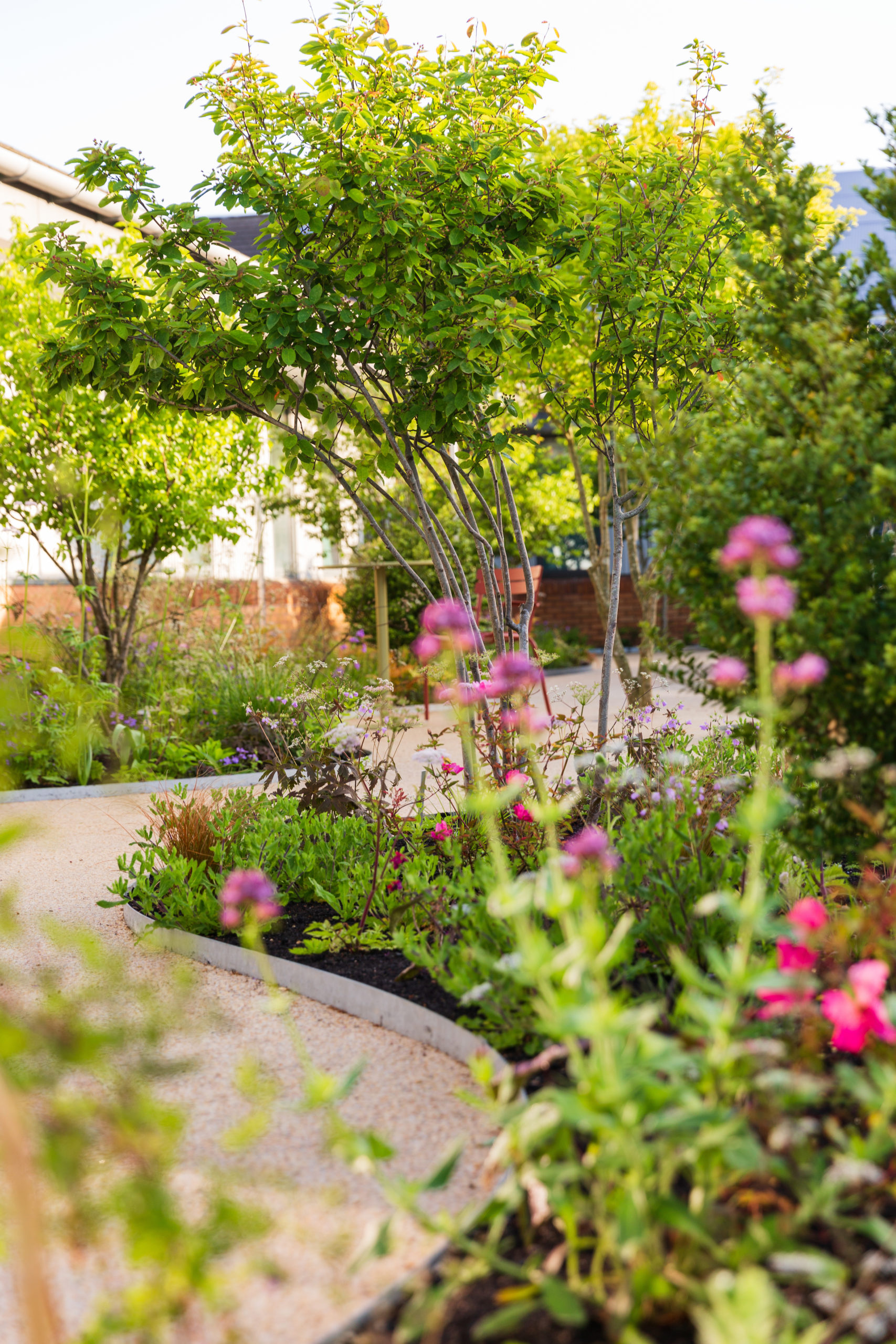The summer solstice will soon be upon us, meaning this month is the time to spend as many moments as possible outside amongst nature – a pastime Head Gardener Owen is certainly fond of!
***
Nothing beats the long daylight hours in June. I love gardening early in the morning at Horatio’s Garden Wales because it’s so peaceful. The morning is also the best time of the day to water, preparing the plants for a long day of photosynthesis and transpiration. Use rainwater where possible, which can be harvested from roof tops into water butts. I’ve started using a Plantsurge device to create magnetic water. I’ll let you know how it goes but it should help to boost flowering and growth.
As well as watering, it’s important to keep on top of the weeds throughout summer. If you feel that your garden has gotten away from you, don’t worry. The definition of a weed is simply a plant growing in the wrong place. You can let nature do its own thing and manage one small area at a time. Leaving areas to go wild can be really beneficial for wildlife.
On the subject of wildlife, be sure to put out water for birds, hedgehogs, and honeybees in June. You never know, a drought could be right around the corner. You can also leave an area of plant debris in the garden to encourage wildlife. For example, undisturbed logs are crucial for stag beetle larvae. They feed on wood for several years until they’re ready to emerge. It’s not only stag beetles that can benefit from a wood pile. You can inoculate dead wood with shiitake, or oyster mushrooms providing you with a tasty snack as well!
In the vegetable garden, there’s still time to sow fast-growing vegetables and salads. For example, sowing carrots in June can yield lovely tender veg and beetroot can be sown for delicious salad leaves. Make sure you check tomatoes regularly for side-shoots (they grow in the gap between the stem and the main shoots). Pinching them out will really help with fruiting.
June is also the perfect month to take plants out of protective environments, like a greenhouse, and harden them off. Place plants in a sheltered position (ideally by a south facing wall) for two weeks to prepare them for the cold nights, or the scorching sun. When planting out, try interplanting with companion plants. We’re using Tagetes and Alyssum at Horatio’s Garden Wales, but there are many options to choose from that will encourage pollinators and create a spectacular summer display.
If you’re growing climbers, like cucumbers or sweet peas, you’ll need to erect supports for them to cling on to. I recommend fashioning an a-frame or wigwam using hazel poles, but a trellis also look impressive. Some plants, like dahlias and Hydrangea ‘Annabelle’, benefit from ring or dome supports. It will save you a lot of time if you put these up early before the plants establish.
Throughout the summer it can really help to give containers and potted plants a regular feed. I use an organic liquid seaweed feed but if you don’t have anything in the house, I recommend making a comfrey tea. Strong and healthy plants can resist pests and diseases much better so keeping them fed is really important. If you do notice a pest problem, SB plant invigorator is a non-chemical product that also acts as a fertiliser. We often use it at Horatio’s Garden Wales.
In the garden, there’s so much to do at this time of year. It’s easy to forget to take a break just to observe and appreciate everything going on around you. I love sitting in the sun and writing my diary, whilst listening to the sound of the birds and the bees. Keeping a record of what we’ve been up to in the garden is really rewarding, and I’m hoping our diary will be a helpful resource in the years to come.
I’m looking forward to seeing how much the garden grows over the coming months and we all can’t wait to taste the apples on our newly planted trees. We hope that you too enjoy all of your homegrown treats and that you make the most of the beautiful sunshine!
***
Here’s to relishing all things bright and beautiful, from first light to last thing at night.


















































